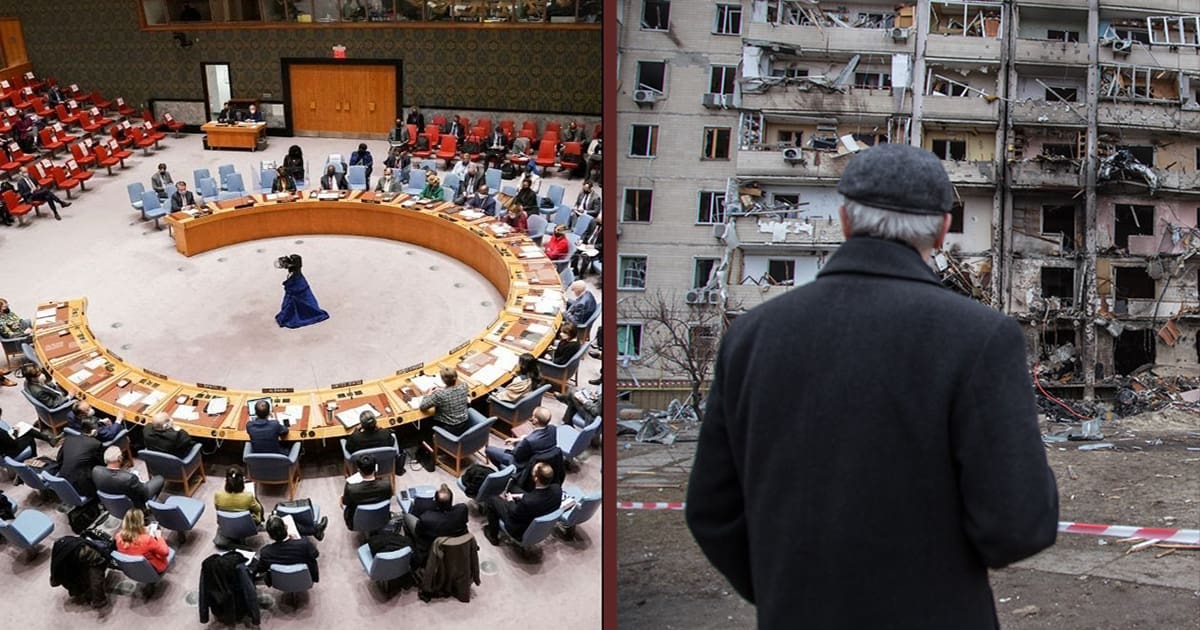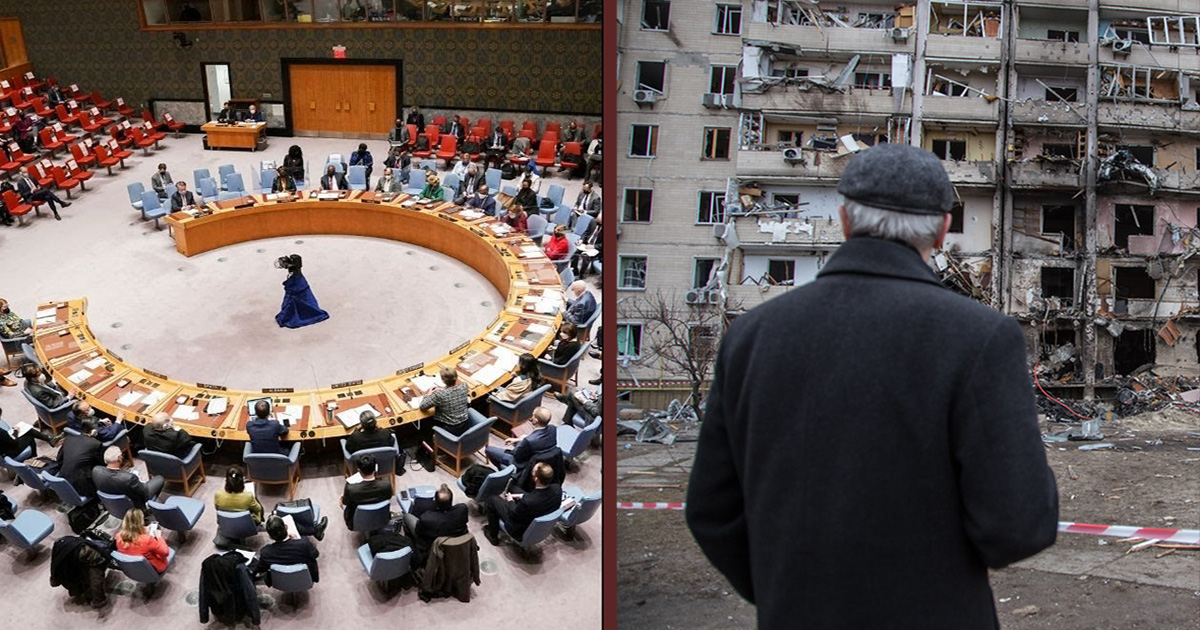Ukraine: Where’s the United Nations?
Why didn’t the United Nations prevent the war in Ukraine? Isn’t it supposed to keep the peace? And why isn’t it using its army now to stop the violence and destruction?
Watching the horrific scenes from Ukraine, people rightfully ask these questions and wonder what the UN is really worth?
Despite the weeks of military buildup on the border, Russia’s illegal invasion still came as a shock. Although armed conflicts are sadly nothing new, it is striking when one nation’s military might crosses into a neighboring sovereign country.
The UN immediately condemned the invasion as totally unjustified and without precedent. But why did the UN not do more to prevent the war then and stop it now? Article 24 of the UN Charter says the primary responsibility of its Security Council is the “maintenance of international peace and security” and the subsequent article indicates that all members (nations) “agree to accept and carry out the decisions of the Security Council…”
So how to reconcile or at least understand the obvious disconnect?
It is true that the UN, 76 years ago, was born out of World War II with the objective “to save succeeding generations from the scourge of war,” a noble cause if there ever was one. But just as the victors write the history of conflicts—in their way, favoring themselves—so too the “winners” of WWII crafted the UN to preserve their power and privilege. Five nations hold permanent individual veto power over any UN resolution that goes against their own interests: the US, the UK, China, France and Russia.
To that end, since 2010 alone, there have been 38 vetos blocking 27 draft resolutions: 23 by Russia, 11 by China, and 4 by the US. The result? A paralyzed UN. A flawed body without power to protect humanity even from war.
But doesn’t the Secretary-General (SG) have power? And an army at his disposal? First, the SG can and does shape the engagement of the UN system on major issues, urges nations to shift their stance and calls on them to influence other nations for important policy changes. But he enjoys no real power to enforce decisions. The 193 member states are the UN, and maintain ultimate sovereignty in decision-making. Encouragement and persuasion, discussion and compromise happen all the time among them. But when push comes to shove, each nation can go its own way.
And there is no UN army. To put those two together is the ultimate oxymoron. The blue-helmeted peace-keepers, lightly armed and defense-postured, offer significant assistance following major conflicts in some places, but are far from a military force capable of large-scale intervention.
So where does all this leave us? Some conclusions we could draw:
- Despite its flaws and limitations, the UN remains the indispensable global organization, the only place where all nations can come together to discuss the major issues and—often—come to an agreed consensus. The world would suffer even more without the UN’s ongoing work to advance Human Rights for all and offer humanitarian assistance in so many ways around the globe;
- The UN’s General Assembly did vote a resolution (141 in favor–5 against–35 abstentions) to condemn Russia’s unprovoked war and demand an immediate unconditional withdrawal from Ukraine. Clearly the vast majority of the international community supports the core principles of the UN;
- The General Assembly also voted 93-24-58 to suspend Russia from its Human Rights Council due to the invasion and alleged human rights violations;
- The UN is responding with massive humanitarian aid to this crisis that dwarfs the mind: 5.8 million refugees, 7.7 internally displaced, the majority women and children and other more vulnerable people. Millions stranded without avenues of escape. Food insecurity reaching starvation levels. Untold billions of dollars in infrastructure destruction.
- Lastly, and most pertinent to this article, the UN desperately needs reform. Discussion for decades demanding structural reform, especially regarding the Security Council, continues without clarity or consensus. Current geopolitical realities are also absent in the Council as well: Africa, Asia-Pacific, Eastern Europe and South America are without representation. The discussion must continue until consensus is reached and meaningful change can be enacted for a 21st century UN able to fully bring together the commitments of all nations for a safe and peaceful future.
Jim Claffey
UN NGO for the Congregation of the Mission
Tags:








Very informative. Thanks
Good explanation. UN at 75 did not look at the issue of the Security Council.